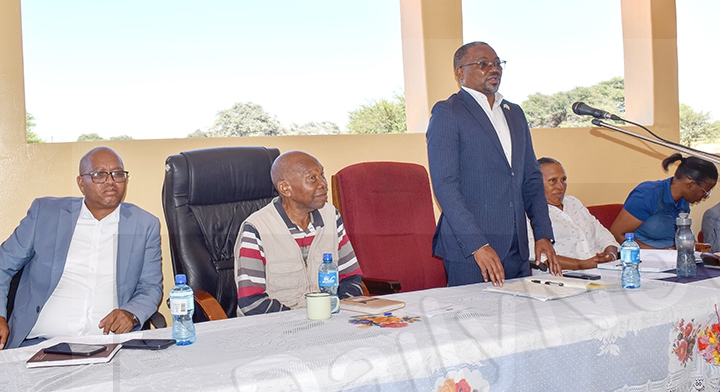ZAMCOM to benefit Botswana
23 Apr 2013
Being a part of the Zambezi Watercourse Commission (ZAMCOM) provides Botswana with an opportunity to negotiate and utilise the shared water resources.
The Commission, whose objective is to promote the equitable and reasonable utilization of the water resources of the Zambezi Watercourse as well as its efficient management and sustainable development; was established by an act of Agreement signed in 2004 by seven of the eight countries.
In an interview, Deputy Director for International Waters Unit, Ms Tracy Molefi said ZAMCOM gives Botswana and Namibia platform to deliberate on fishing regulations, noting that this would be a process that would not happen overnight.
Ms Molefi warned that the commission would not solve everything, but explained that though Chobe is the region that geographically borders on the Zambezi Water Basin, it should be understood that this is a Botswana initiative, not just a Chobe project.
It is envisioned that ZAMCOM will be a water management organization for the entire Zambezi River Basin in line with the revised SADC Protocol on shared watercourses.
ZAMCOM is composed of the riparian states (countries around the water basin) being Angola, Botswana, Malawi, Mozambique, Namibia, Tanzania, Zambia and Zimbabwe. It is made up of the council of ministers, the technical committee and the secretariat.
Information and communications specialist for the Interim Zamcom Secretariat Ms Leonissah Abwino-Mujoma said at the ZAMCOM consultative meeting held in Kasane last week, that each country was left at liberty to make its own decisions on how best to represent the Zambezi stakeholder interests across the country.
So far, two ZAMCOM organs had been established being the council of ministers and the permanent ZAMCOM secretariat. Currently, the secretariat is being hosted by Botswana but the organization is in the process of finding a permanent host country.
“You will agree with me that when the rest of the organs are put in place and functioning, the ZAMCOM’s work would be made easier to have a well-organized stakeholder base in the form of the National Stakeholders Coordination Committee (NASC) to support the commission, hence the great importance attached to this event,” Abwino-Mujoma said.
The secretariat has for the past months been holding workshops in the riparian states to establish the NASC and these committees are expected to ensure that the views, aspirations and needs of the stakeholders are taken on board when it comes to the use, management and conservation of the Zambezi basin.
Botswana has already benefited from the ZAMCOM commission through the Zambezi integrated agro commercial project which allows Botswana to draw water from the shared basin for agricultural production on a large commercial scale in the north of Botswana, according to the Ministry of Agriculture’s website. This will allow the Pandamatenga area to do their farming throughout the year through irrigation schemes. ENDS
Source : BOPA
Author : Ludo Chube
Location : Kasane
Event : Interview
Date : 23 Apr 2013




